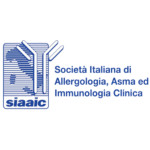
Don’t perform the so-called “food intolerance tests” (apart from those which are validated for suspect celiac disease or lactose enzymatic intolerance)
Several methods are constantly proposed to diagnose the so-called “food intolerance”; these procedures includes VEGA-test, Cytotoxic test, serum specific IgG4 dosage, hair analysis and “bioresonance” techniques. None of these procedure has sufficient scientific demonstration of efficacy and repeatability in diagnosing any food-related complaint.The use of these procedures, giving unreliable results which are not clinically related to patients’ complaints, can be harmful of unappropriate diets potentially dangerous for the health, without obtaining the resolution of patients’ symptoms/complaints.
Sources
1. Stapel SO, Asero R, Ballmer-Webwe BK. Testing for IgG4 against foods is not recommended as a diagnostic tool. EAACI Task Force Report. Allergy 2008; 63: 793-6.
2. Carr S, Chan E, Lavine E, Moote W. CSACI Position statement on the testing of food-specific IgG, Allergy Asthma Clin Imunol 2012; 8(1): 12.
3. Senna G, Bonadonna P, Schiappoli M, Leo G, Lombardi C, Passalacqua G. Pattern of use and diagnostic value of complementary/alternative tests for adverse reactions to food. Allergy 2005; 60(9): 1216-7.
4. Semizzi M, Senna G, Crivellaro M, Rapacioli G, Passalacqua G, Canonica WG, Bellavite P. A double-blind, placebo-controlled study on the diagnostic accuracy of an electrodermal test in allergic subjects. Clin Exp Allergy 2002; 32(6): 928-32.
5. Senna G, Gani F, Leo G, Schiappoli M. [Alternative tests in the diagnosis of food allergies]. Recenti Prog Med 2002; 93(5): 327-34.
6. Senna G, Passalacqua G, Crivellaro M, Bonadonna P, Gani F, Dorizzi R, Dama A, Canonica GW, Lombardi C. Unconventional medicine: a risk of undertreatment of allergic patients. Allergy 1999; 54(10): 1117-9.
Attention. Please note that these items are provided only for information and are not intended as a substitute for consultation with a clinician. Patients with any specific questions about the items on this list or their individual situation should consult their clinician.


Recent Comments